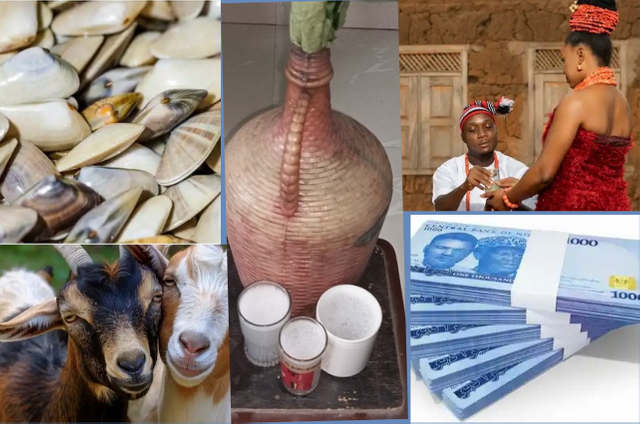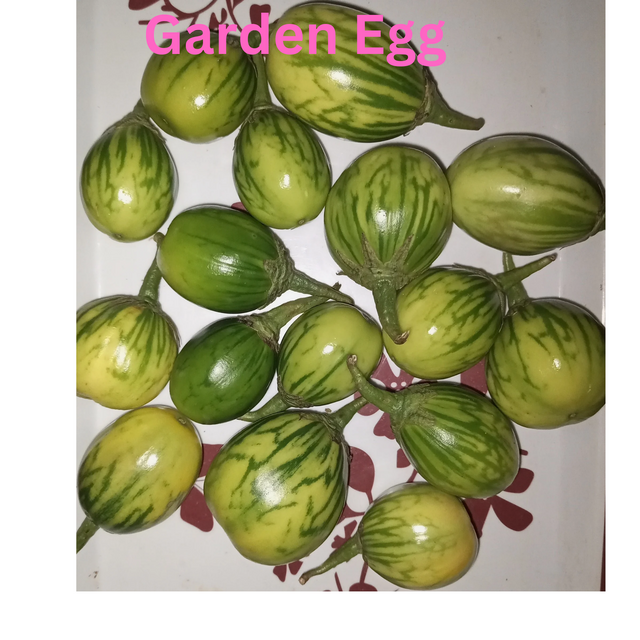
Why are men required to pay bride price for traditional wedding? Part Two: The steps of the Igbo traditional Marriage.
Hi Steemians! Welcome to part two of our discussion which is the continuation of last week round table meeting . In our last meeting, we looked at the bride price and the items that may be included when paying the bride price.
As a meeting that comes up every week, I have come up with another important aspect of the traditional marriage discussion.
Traditional marriage is such a colorful event that takes place in a traditional setting. Every requirements needed in the event, are done traditionally in an orderly manner. In this week's discussion, I would be looking at the Steps of the Igbo traditional Marriage.
I recognize the presence of all the ethnic nationalities present in this community who are members of this great community as follows:
The Igbos
The Ibibios
The Efiks
The Yorubas:
The Hausas
The Ijaws
The fulanis
The Tivis
The kanuris
I don't forget other ethnic nationalities that I could not mention but are existing in this community. My greetings to all of you and welcome to this meeting.
Having done this, I come up to present the kola to you all for today's meeting
 As we eat, let's move on....
As we eat, let's move on....
For proper understanding, I will like to take a recap of the names we call the bride price in our various languages. The few names I know are as follows:
| English: | Bride price |
|---|
| The Igbos: | Ego isi nwanyi |
|---|
| The Yorubas: | Eru Iyawo |
|---|
| The Ibibio/Efik: | akwok kibok ndo |
|---|
| The Ijaws: | Fhitibi |
|---|
| The Hausas: | Sadaki |
|---|
Please note that there are other names I could not get. If yours is mentioned or is incorrectly spelt, please feel free to add it and then provide the correct spelling in the comment section.
As I pointed out earlier, for marriage to be consummated successfully in the Igbo culture, there are orderly steps to be taken traditionally. The steps may vary in different cultures or traditions. Be that as may, some steps are in common practice in different cultures as well. The steps are as follows:
- The Ist Process: Introduction or knocking at the door.
This is the first move and meeting taken by the groom. After the groom must have proposed to his bride, he takes his parents along with few elders that have a strong knowledge in traditional events to the bride's parents. He goes with some drinks. Upon arrival at bride's place and a warm welcome by the bride's parents with a presentation of kola, the groom's father makes the intention of his son known to the bride's parents.
Having heard from the groom's parents, the bride parents or potential inlaws tells them that they will discuss with their daughte.r and gets back to them in due course.
- 2nd Process:Carry out a background check:
In this process, both families go into deep inquiry to know more about each others's family. They do it differently without the knowledge of each other. This is done even before the groom visits the bride's family. The groom makes inquiries about the bride on the following:
- The bride's village
- The religion
- The ways behavior
- Blood relations etc. All these are carried out and the outcome determines the next step or process to be taken.
The 3rd Process: Bridal list collection
After both families finishes the investigation or inquiries, and then become satisfied with the outcome, the groom proceeds to the next stage. This stage is called the list collection.
On the meeting for the discussion of the bridal list, the bride's parents call their daughter to tell her about the purpose of the groom's coming. They ask if they should proceed to accept or reject the marriage proposal from the groom.
If she answers yes, then they proceed to present the marriage list to the groom's parents.
4th Process: Negotiating the dowry payment (bride price).

At this stage, both families come together to discuss the amount which the groom would pay as dowry for him to marry the bride based on the tradition. There is no set amount as it is negotiable.
The two families will meet and discuss the dowry amount as tradition demands. There is no set amount for the dowry as it’s up to the two families to decide when the dowry discussion comes up.
In some communities, civilization has overtaken this process as it considered selling their daughter.
The 5th process: Traditional Marriage proper: Wine Carrying:
After the bride price has been agreed upon, the stage is now set for the traditional marriage ceremony. This event is made public for anyone to come and witness it. At this event, the bride's family officially hands over their daughter to the groom. They inform everyone that the groom has fulfilled all requirements set according to tradition.
During this event, several items like kitchen utensils, clothes and others are given to the couple as gifts to start their family. At this point, a new family is been formed.
Here comes to an end of our discussion about traditional marriage. I hope you all enjoyed the meeting.
It would be nice to share your own aspect of the traditional marriage requirements so that we all could learn from each other.
Thanks for going through this article. We will meet next week for another interesting discussion.
Thank you for publishing an article in the Steem4nigeria community today. We have assessed your entry and we present the result of our assessment below.
This is informative. Thank you for sharing!
Remember to always share your post on Twitter using these 3 main tags #steem #steemit $steem
Hi, Endeavor to join the #Nigeria-trail for more robust support in the community. Click the link Nigeria-trail
Guide to join
Downvoting a post can decrease pending rewards and make it less visible. Common reasons:
Submit
Downvoting a post can decrease pending rewards and make it less visible. Common reasons:
Submit
Downvoting a post can decrease pending rewards and make it less visible. Common reasons:
Submit